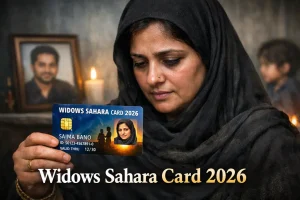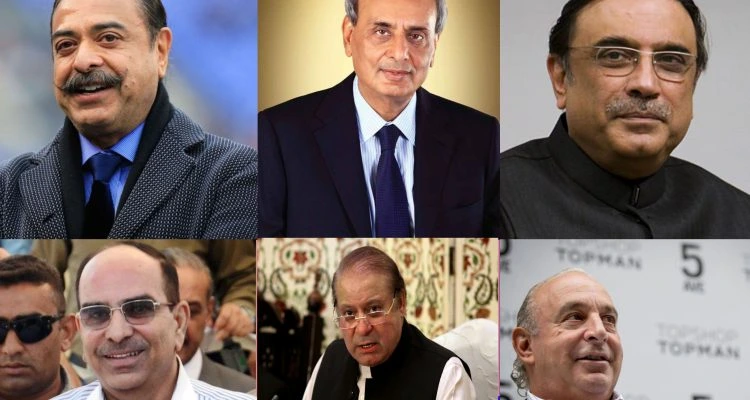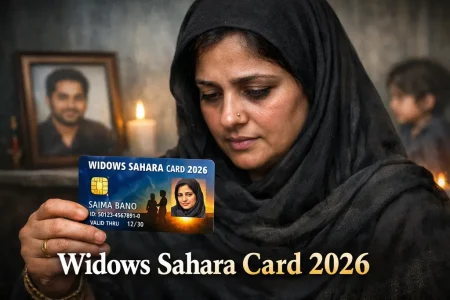It has been a year of global economic instability but the elite in Pakistan still shine in the Forbes World’s Billionaires List 2025, demonstrating the ability to survive in the domestic environment of inflation, political dynamics, and infrastructure hurdles. In April 2025, Forbes released its 39th annual ranking of the richest people in the world with a record 3,028 billionaires, all with a net worth of $16.1 trillion – some 2 trillion above the previous year. Although the U. S. leads with 902 entries, Pakistan boasts of a small yet powerful list of 10 billionaires (including those of Pakistani genesis), who hold more than 15 billion dollars together. These are the people, who not only propel the GDP of Pakistan but also make connections with the world, usually at the other end of the world, through textiles, real estate, technology, and sports.
The list encompasses self-made businessmen and inherited households alike, with many also investing in green business such as solar power and online money. These billionaires will be able to drive growth as Pakistan looks into IMF-backed reforms and CPEC expansions. Here is the profiling of the top 10, in terms of net worth as of March 7, 2025 (the cutoff date of Forbes), based on stock prices, exchange rates and verified assets.
Shahid Khan: $12.2 Billion (Age 74, Automotive and Sports)
Shahid Khan, the owner of the football club was born in Lahore in 1950 and he represents the immigrant dream. When he landed in the U.S. at 16 years old with a one-way ticket and $500, he helped clean dishes, which paid for his engineering degree at the University of Illinois. He then bought Flex-N-Gate, a failing auto parts supplier in 1980 at 50,000. His brand-new one-piece truck bumper completely transformed the industry and the company expanded to a worldwide force with 69 manufacturing plants and customers such as Ford and Toyota. In the current times, Flex-N-Gate has more than 24, 000 employees.
Khan is also a sports owner. In 2011, he purchased the NFL Jacksonville Jaguars at a price of $760 million (where its value today stands at 4.4 billion) and in 2013, he purchased the English Premier League Fulham FC. His opulent nature is underscored by his $1.4 billion yacht, Amadea, but philanthropy, 100 million given to the University of Illinois, helps him stay connected to his roots. Being the only Pakistani-origin billionaire in the top 100 in the Forbes list, the story of Khan is inspiring: not chosen, but those who choose it.

Mian Muhammad Mansha: $4.3 billion (Age 79 Textiles and Banking)
A business magnate, dubbed the Nishat King of Pakistan, Mian Mansha is the founder of the Nishat Group, a hundred billion dollar conglomerate that started as a small business dealing in textiles trading. He began exporting cotton in the 1960s but went on to diversify to cement, power generation and banking. His MCB Bank, which is among the largest banks of Pakistan, is represented by 1,600 branches and by assets totaling to 10 billion dollars. Textiles arm Nishat also provides fabrics to international brands and deployed a solar-powered mill in Faisalabad in 2023, becoming the first to manufacture green in South Asia, reducing energy expenditure by 30 percent.
Mansha is a philanthropist who funds hospitals and schools through the Mansha foundation. His empire has 30,000 employees despite political unrest with a contribution of 2% to the Pakistani GDP. His ambition and restraint have led him to say that wealth is a means to an end, not an end in itself, a view he expressed once.

Sir Anwar Pervez: 2.5 Billion (Cement and Retail, Age 88)
The story of Sir Anwar Pervez is an example of diaspora grit, having grown up in a village in Punjab, to knighted status in the UK. He began as a bus conductor in London in the year 1960 and founded Bestway Cash and Carry in 1976 at a single store. The Bestway Group has a stake in the United Bank Limited and owns 60 warehouses in the UK which are the largest Asian owned wholesalers in Europe and cement plants in Pakistan. The revenue of the group reaches over 4 billion a year.
Having been knighted in 2000 due to his contribution to business, Pervez focuses on the community: His foundation constructs mosques and schools in Pakistan and the UK. He leads a low profile life in Ilford where he advises young entrepreneurs. His secret? “Work hard and stay loyal to the customers.

Asif Ali Zardari: 2.1 Billion (70, Real estate and Agriculture)
Zardari is the former and current President and co-chair of PPP, which means that his wealth is a mix of politics and business. Having inherited property of his Sindhi landed gentry family, he ventured into sugar mills, rice exports, and enormous real estate, which included polo grounds in Dubai and properties in many countries. He has been surrounded by controversies, such as corruption investigations (exonerated in 2020) but his estates at Bilawal House and offshore bank accounts confirm his role.
After his presidency, Zardari is engaged in philanthropy through the Shaheed Bhutto Foundation, which supports victims of the floods. In 2025, his net worth increased by 15 percent on agriculture booms. A cunning businessman, he cracks a joke, “Pakistan, politics and business are chai: to be taken hot and strong.

Nawaz Sharif: $1.8 Billion (Age 75, Steel and Construction)
The Ittefaq Group led by Prime Minister and PML-N leader Nawaz Sharif is a leading steel producer, and the Lahore mills produce 1 million tons annually. He began his work in the 1970s with family iron foundries to establish Sharif Group as a construction giant, having built highways and high-rises. Twice exiled on graft claims (reinstated), his 2024 comeback revived fortunes through building projects in the cities.
The Raiwind estate owned by Sharif is as big as a small town however, he invests in education via Sharif Trust. Even his political fines which made him lose wealth in 2025 cannot harm him: “Pakistan steel is as strong as its people.

Malik Riaz Hussain: 1.6 billion (Age 70, Real estate)
The founder of Bahria town is Malik Raza who transformed the job of a clerk into the biggest real estate club in Pakistan. Bahria started with townships at Rawalpindi in 1995 and currently covers 50,000 acres in eight cities with theme parks and hospitals. International business in the UK and Dubai give it international luster. Land acquisition controversies still continue, and his developments accommodate millions of people.
Riaz is also a philanthropist who has provided free healthcare through Bahria Foundation. In 2025, net worth increased by 20 percent on tourism booms. His motto is dream big, build bigger.

Sadruddin Hashwani: 1.4 Billion (Age 83, Hotel)
The father of Hashoo Group, Sadruddin Hashwani began his career as a trader in East Africa, but later came back to Pakistan in 1960. His flagship brand Pearl-Continental Hotels operates 10 upscale hotels, including Karachi tower. His empire survived the 9/11 downturns by making smart adjustments into shipping and textile diversification.
Being a Sufi-oriented philanthropist, he finances orphanages. And he says that hospitality is heart-related, not room-related, as his 2025 gains came because of eco-tourism pushes.

Read: Latest Business News







